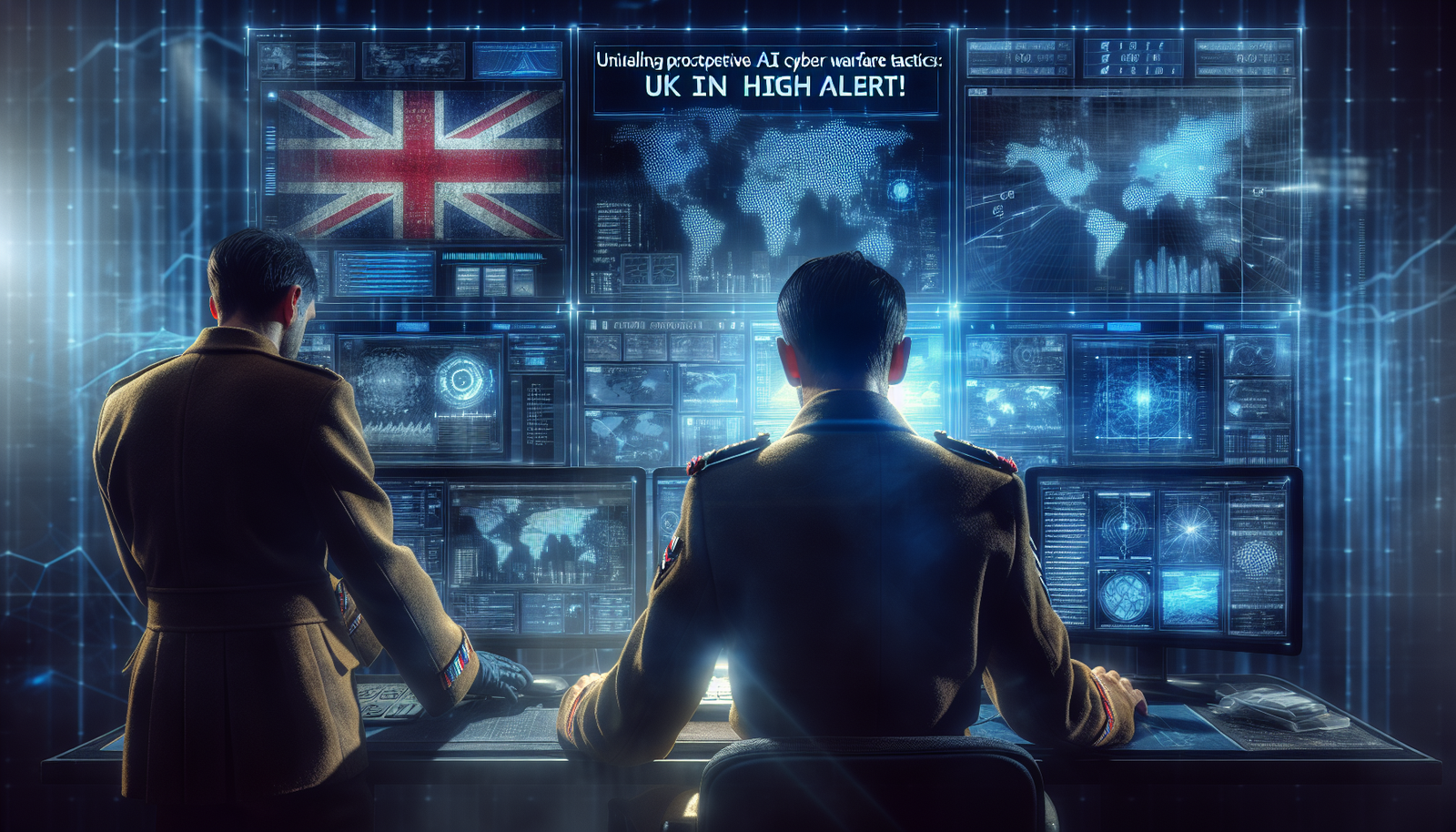Russia is intensifying its cyberattack strategy by integrating artificial intelligence into its operations. This technological shift raises major concerns for the security of the United Kingdom. British authorities are worried about the enemy’s ability to disrupt critical infrastructure using these advanced tools. Minister Pat McFadden warns that AI could become a formidable weapon against vital infrastructures. Threats targeting the country’s electrical networks are becoming alarming realities. Cyber warfare is part of daily life in Britain, with an increasing focus on attacks orchestrated by state actors. The consequences of such escalation could be catastrophic for the population.
Intensification of cyberattacks by Russia
During a NATO conference in London, British Minister Pat McFadden alerted to Russia’s willingness to use artificial intelligence to bolster its cyberattacks against the United Kingdom. This development particularly concerns cybersecurity specialists, highlighting how technology can be hijacked for malicious purposes.
Creation of a security research laboratory
To counter this threat, a significant initiative has been announced: the establishment of the AI Security Research Laboratory (LASR) in London. This program, funded to the tune of £8.2 million, aims to monitor emerging threats. Support from the British intelligence agency GCHQ as well as other government institutions is also essential to develop an adequate response.
Risks facing vital infrastructures
Pat McFadden expressed concerns about the potential consequences of a Russian cyberattack, particularly the possibility of targeting electrical networks. The disruption of critical infrastructures could lead to massive blackouts, affecting the daily lives of millions.
A daily life marked by cyber warfare
The minister described the current situation as a state of cyber warfare, where hacking attempts are exacerbated by Russian actors. Russia has intensified its attacks over the past year, targeting not only the United Kingdom but also its NATO allies supporting Ukraine against Moscow’s aggression.
Recurring threats to the United Kingdom
The Russian strategy includes attacks focused on media, telecommunications, and British political institutions. McFadden firmly stated that while Russia would not risk a conventional military attack on a NATO member, *cyberattacks represent a real and imminent threat*.
History of cyberattacks
Past incidents attest to the capabilities of Russian hackers. In December 2015 and 2016, attacks were already carried out against the Ukrainian electrical grid, with perpetrators identified as Russian military intelligence cybercriminals from the GRU. Although Ukrainian defenses have improved, these incidents demonstrate the vulnerability of infrastructures to attacks.
Use of AI by other actors
Regarding the broader threat, McFadden warned that other nations, such as North Korea, are also adopting artificial intelligence to create more destructive hacking tools. Technological advancements raise concerns about the growing use of AI in military and cyber contexts.
Call for private sector cooperation
British ministers hope that the private sector will get involved by providing additional resources to strengthen the collective response to cyber threats. Cooperation between government agencies and private companies is a crucial lever to enhance national resilience against these growing challenges.
This development underscores the need for increased vigilance and collaborative momentum to safeguard nations’ security in an ever-evolving cyberspace. Initiatives like these can not only protect critical infrastructures but also pave the way for a comprehensive digital security strategy.
Frequently asked questions about the use of AI by Russia for its cyberattacks
What are the implications of Russia’s use of AI to target the United Kingdom?
The implications include a potential increase in the complexity and effectiveness of cyberattacks, making detection and neutralization by UK security agencies more difficult.
How could AI be used by Russia to carry out cyberattacks?
AI can be exploited to automate attacks, create more sophisticated cybersabotage tools, and analyze data to identify vulnerabilities in critical infrastructures.
What is the UK government’s position on this threat?
The UK government, through its ministers, is implementing research programs and strengthening its security measures to counter emerging threats related to the use of AI in cyberattacks.
What types of infrastructures could be targeted by Russian cyberattacks using AI?
Critical infrastructures such as electrical networks, communication systems, and government and military facilities are particularly vulnerable and could be prime targets.
What evidence is there that Russia is already using AI for its cyberattacks?
Cybersecurity experts have observed an evolution in the tactics of Russian hackers, indicating increased sophistication in the use of AI tools, although specific AI examples are still in development.
What measures can British companies take to protect themselves against these cyberattacks?
Companies can strengthen their cybersecurity by regularly updating their systems, training their employees to recognize threats, and investing in technologies for detecting and preventing cyberattacks.
How will the AI Security Research Laboratory (LASR) planned by the UK government help?
The LASR will focus on studying emerging threats related to AI, developing strategies and tools to anticipate and counter potential cyberattacks, while collaborating with the private sector and security agencies.
Can we expect an escalation of cyber conflicts between Russia and the United Kingdom?
Yes, with increasing geopolitical tensions and the development of AI technologies, an escalation of cyber conflicts is likely, requiring heightened vigilance from security agencies and governments.






